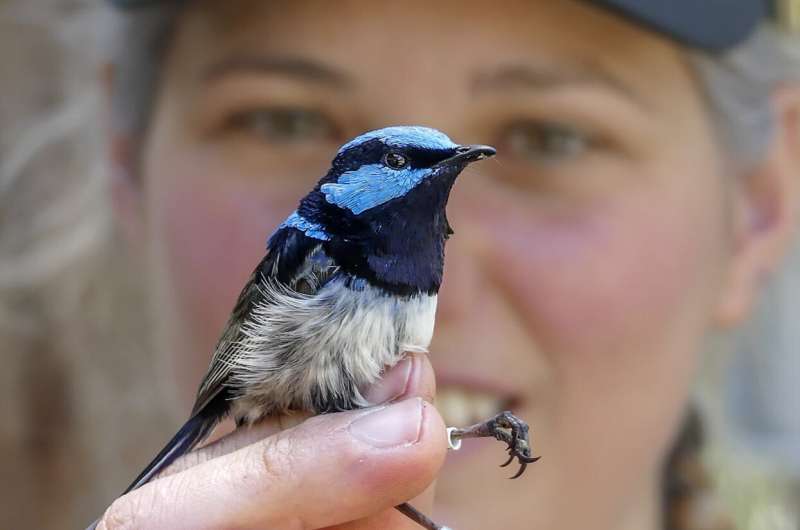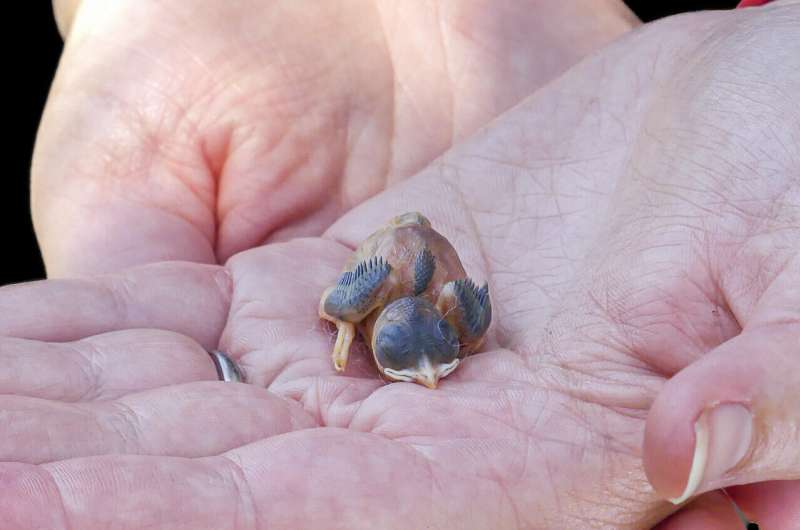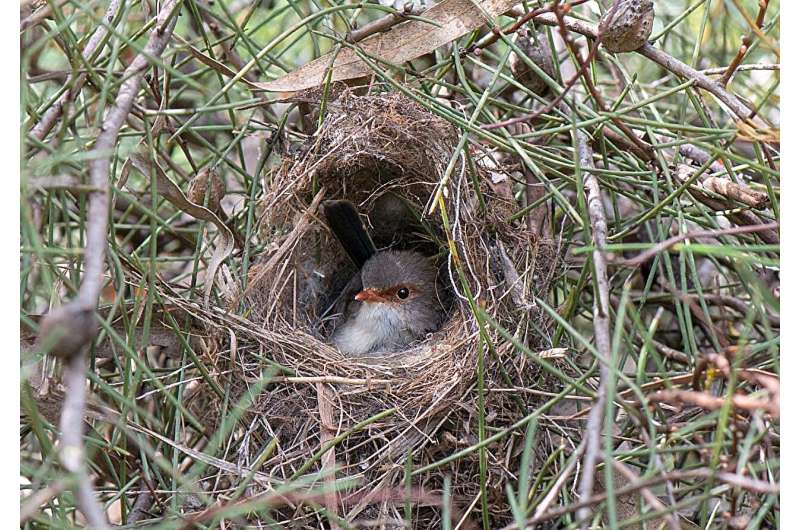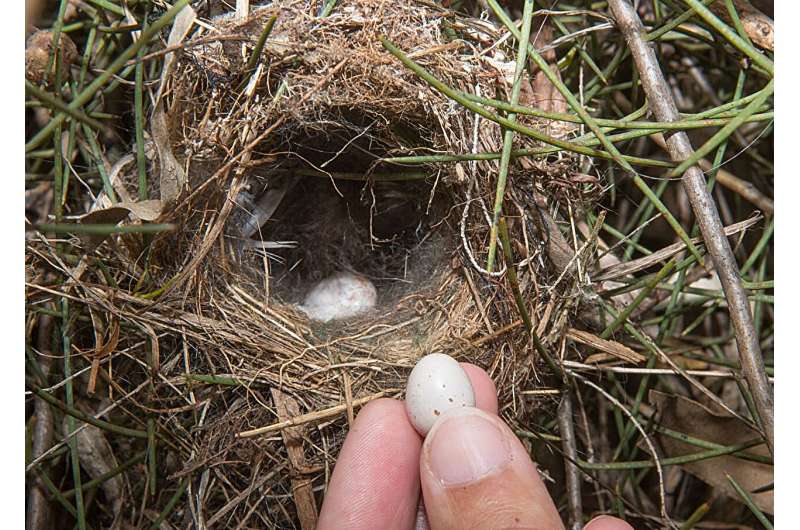This article has been reviewed according to Science X's editorial process and policies. Editors have highlighted the following attributes while ensuring the content's credibility:
fact-checked
peer-reviewed publication
trusted source
proofread
Baby birds hatch with ability to mimic mom

Singing a gentle lullaby can help put a human baby to sleep but its usefulness in the low grassland swaying nests of Australian songbirds takes maternal 'singing' to even greater heights.
Bird ecologists from around the world, including the University of Vienna and Flinders University, have shown an native wren mother's signature call to her eggs helps to give her newborn their distinctive call for food—helping these fairywren species to bond with and prepare their young for the real world.
By calling to them in the egg, the new study found the nestlings responding favorably to the mother's "B element" vocalization. The article, "Nestling begging calls resemble maternal vocal signatures when mothers call slowly to embryos " has been accepted for publication in pre-print by The American Naturalist
The special individual calls by Superb fairywrens (Malarus cyaneus) appear to "teach" their unborn chicks family's distinct call type both inside the egg and emerging into the nest, says Flinders and University of Vienna Professor Sonia Kleindorfer, who founded the Flinders University BirdLab 20 years ago.
The study of fairywrens (songbird family Maluridae) was conducted by Flinders University scientists in South Australia at the Cleland Conservation Park study, with help from the Department of Environment and Water.

"In eight species of fairywren and grasswren, females produce a B element to their embryos that is the mother's signature element and unique to each female. This B element is also the nestling begging call produced shortly after hatching," says Professor Kleindorfer.
"In this study, we show that female songbird mothers produce a vocal signature element to their embryos that is later produced by their nestlings as a begging call.
"Nestlings produce calls with greater vocal copy similarity between their mother's signature call and their begging call when mothers called slowly to the embryo."
Professor Sonia Kleindorfer and Flinders University's Dr. Diane Colombelli-Négrel say extended studies by the BirdLab research is giving new insights into the extraordinary female vocalization behavior of Australian songbirds that has long been overlooked.

"Nestling begging calls resemble maternal vocal signatures when mothers call slowly to embryos," says Dr. Colombelli-Négrel.
"In this study, we show maternal behavior that is concordant with pupil-directed vocalization behavior when mothers call to their embryos. Mothers with slow call rate had offspring with enhanced learning (greater vocal copy similarity) of a vocalization experienced in ovo."

In each species, other element types in addition to the B element were also produced by mothers calling to their embryos. Our next paper asks: why these other element types as well? (turns out, to reduce the risk of habituation to the B element).
Collaborators on the project are from the ANU, James Cook University, University of Illinois Urbana, Cornell University, Monash University, University of California Berkley and Western Sydney University.
More information: Sonia Kleindorfer et al, Nestling begging calls resemble maternal vocal signatures when mothers call slowly to embryos, The American Naturalist (2023). DOI: 10.1086/728105
Journal information: American Naturalist
Provided by Flinders University




















